
Content writing for SEO aims to get the most eyes on your business’ content by getting it to the first page of Google’s search results.
Doing this manually can take hours, with marketers and writers forced to do manual keyword research (akin to taking a shot in the dark), creating content around it, and then hoping all the technical elements are correct.
There is a much better alternative to this tedious process.
Just use a damn SEO tool.
These tools speed up keyword research, content planning, content creation, and optimization.
In this article, we’ve listed 15 tools for SEO content writing, explained what they do, and how they can help writers.
Effortlessly export your Google Docs to WordPress with just 1-click.
Get Started Today
So there are three main steps in content writing:
SEO content generator software helps with one or all of these steps. It includes basic online writing tools like Google Docs, AI-focused software like Jasper or Frase, or all-encompassing content marketing platforms.
Content writers and marketers often use a combination of software to create a fast and effective workflow. This allows them to focus on other aspects of content marketing like content distribution and social media.
We’ve divided this list into three sections to reflect the different stages of planning, creating, and publishing content.
Keywords are a fundamental part of SEO content writing. Picking the right keywords for your topic and using secondary keywords in your content helps you compete for higher search engine rankings.
Surfer is a content marketing platform with a powerful planning tool. It uses different algorithms to get relevant data on any topic you search for. So no matter how broad your keyword is, Surfer can crawl the web and get you the right keywords to use in minutes.

The software lets you group keywords together, so you can write content that can help you outdo your competitors at a faster pace. Since marketers can create topic clusters easily on Surfer, they can plan out their content strategy months ahead.
Surfer is also a popular tool for developing content briefs, optimizing content, and auditing existing web pages.
Of course, Surfer is go-to tool for content optimization but you can also refer to other Surfer SEO alternatives that have advanced features in affordable rates.
SEMRush is an all-encompassing content marketing platform that has six keyword research tools. These allow you to go really in-depth on the topic of your choice.
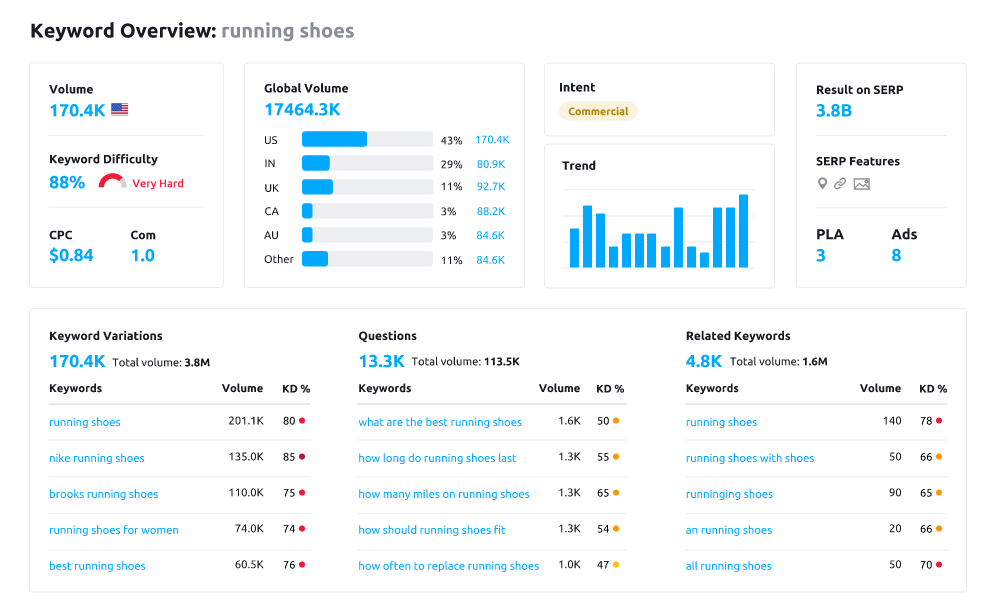
Besides getting keyword suggestions for your own topics, SEMRush lets you see your competitors’ top keywords and tells you how you can outrank them.
You can also discover “keyword gaps,” which are gaps between your content and other top-ranking pieces. They are opportunities for you to launch new campaigns.
SEMRush claims to host a database of 21 billion keywords, so there’s a high chance that you get comprehensive metrics for your topic.
Frase is an AI-powered content and SEO tool that analyzes competitor content and SERPs to give you the keywords and questions relevant to your topic.

Users can enter any key phrase and get a list of the top-ranking content for it, along with the headers they use.
Click on the “Automate Content Brief” option, and you get all the data you could ever need, from guidelines to topic clusters, relevant headers, questions, and statistics.
You can use this to automate a content outline and go from research to writing in minutes instead of hours.
If you’re a content manager that works with multiple writers, you can share automated briefs with them so they hit the ground running. This process eliminates unnecessary conversations between writers and editors regarding what to write about, how long each section should be, and so on.
Read Frase’s full review on our sister site, Codeless.
BuzzSumo’s content discovery feature helps marketers pick suitable topics and keywords for their content by providing detailed insights. You can get monthly search volumes, cost-per-click, and search trends for any keyword.

Users get access to filters and current trends, so they can write pieces that have a higher chance of going viral.
For deeper research, users can see the “Questions” section, where they can see popular queries and even dive into Reddit subreddits to see what their audience is talking about.
PageOptimizer Pro (or POP) is primarily an on-page SEO tool. It’s ideal for writers that are updating existing pages but can also be used to create new content.
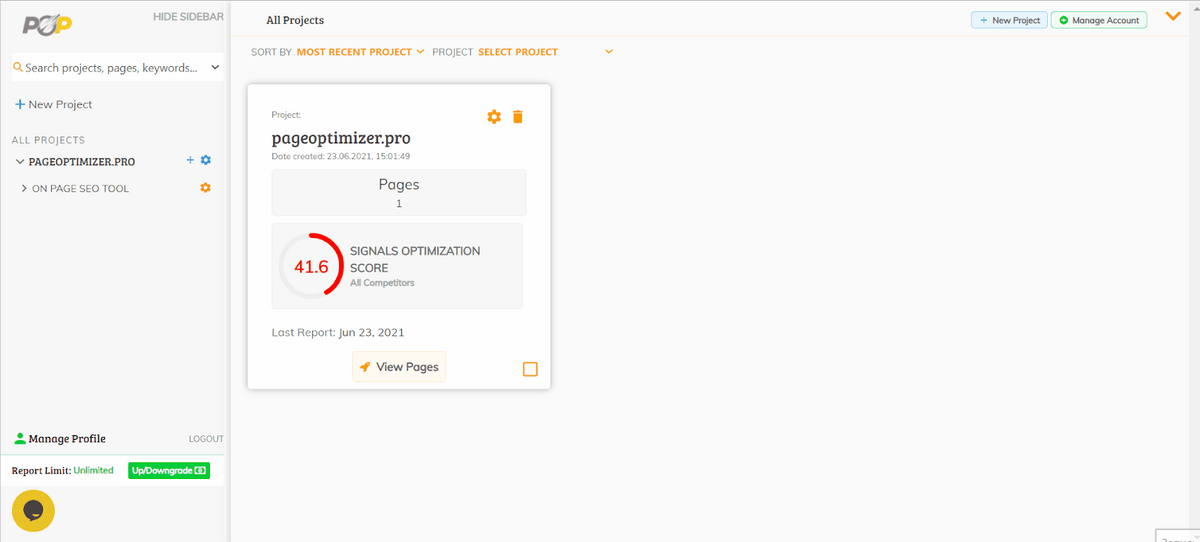
The software is pretty straightforward. You enter the keyword and target region to get a list of top-ranking search engine results. You can select the relevant pieces for you, and POP will generate a list of keywords and variations that are missing from your content.
You can export these as a content brief and work on new content for that page or client. Or you can improve an existing page so it ranks higher.
Once you know what keywords, topics, and headers to use, it’s time to get to the actual writing. You can go old school and use Word to draft your articles or use advanced online tools that make the process easier. Here’s a list of software to consider:
One of the most commonly-used online writing tools is Google Docs. It’s a free word processor with a neat UI, reliable functionality, and many customization options.
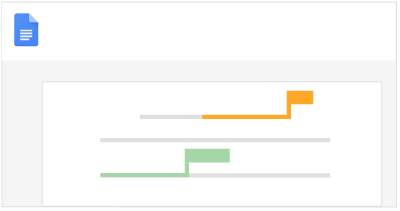
Writers and content agencies use Docs because it enables seamless collaboration. You can share your document with one or more people using a single link. Everyone with access can view and edit the document in real-time on their own devices.
The writer can control who edits their document. Sharing options can be limited to just “Viewer” or “Commenter.” Any changes are tracked along with the user who made them.
In addition, you never have to worry about losing your documents because all of them are auto-saved to your Google Drive. Users can also download files in multiple formats.
Docs has useful formatting options, and users can add several extensions to increase its functionality.
Grammarly is an AI-powered tool that checks your writing for grammar, spelling, vocabulary, tone, and clarity.
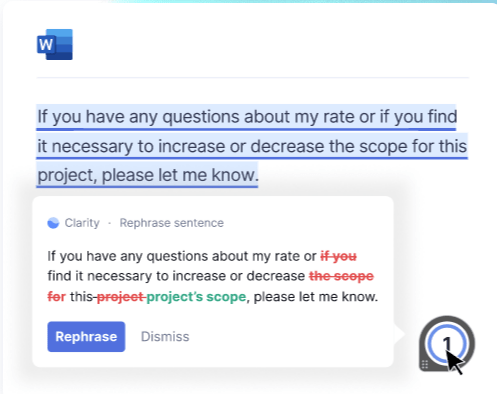
The tool’s popularity stems from the ease with which you can optimize your content. It highlights errors or clarity issues, and you can correct them with a single click.
It has Chrome extensions that allow you to refine your writing on word processors like Google Docs, email providers (Gmail, Outlook), and multiple social media platforms. It can also check for plagiarism by comparing your article with millions of others in a few minutes.
Grammarly also works for writers who prefer to draft offline since it has a desktop app.
Alternatively, you can write directly in Grammarly and have the tool check as you write.
While Grammarly is a helpful resource, writers must check every suggestion before they accept it. Since it’s an AI-powered tool, some suggestions may not be relevant or accurate.
Check out our sister company, Codeless for a full in-depth review of Grammarly.
Another AI-powered writing assistant that’s worth checking out is Writer. Writer combines the features of Grammarly with other functionalities, including snippet shortcuts, custom writing rules, and more.

Writer is best-suited for SEO-focused content teams, where managers or strategists want to create multiple brand guides, terminology usages, etc., and make them easily accessible to their teams.
You can create Snippets, where entire sentences, paragraphs, or templates can be saved and inserted into a document or email with a simple keyphrase.
For example, you can create a Snippet along the lines of “Thanks for your interest in our product. You can get more information using this link…” and save it as “//sub.info.” Now, you just need to type that phrase to add that entire paragraph to any email or document.
These nifty features ensure teams publish consistent, high-quality content for their clients or customers.
Jasper is a leading AI content creation tool that can create blog posts, web copy, social media posts, and more in a matter of minutes.
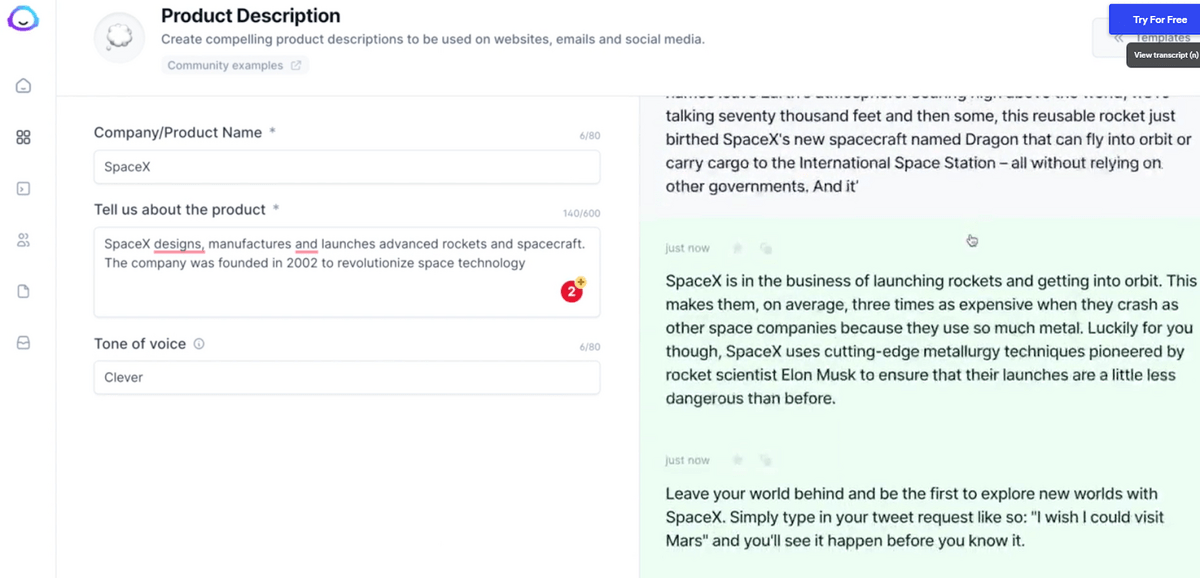
Users provide basic instructions about the topic and the type of content they want, and Jasper will instantly create the content.
The company claims that Jasper has read 10% of all online content and can use this knowledge to give you unique, plagiarism-free write-ups for any niche.
As great as the tool is, Jasper requires human oversight, editing, and checking to see if the content is suitable for your site and matches the quality you were looking for.
Hemingway is a well-known free online editor that checks your text for readability, spelling, and grammar.
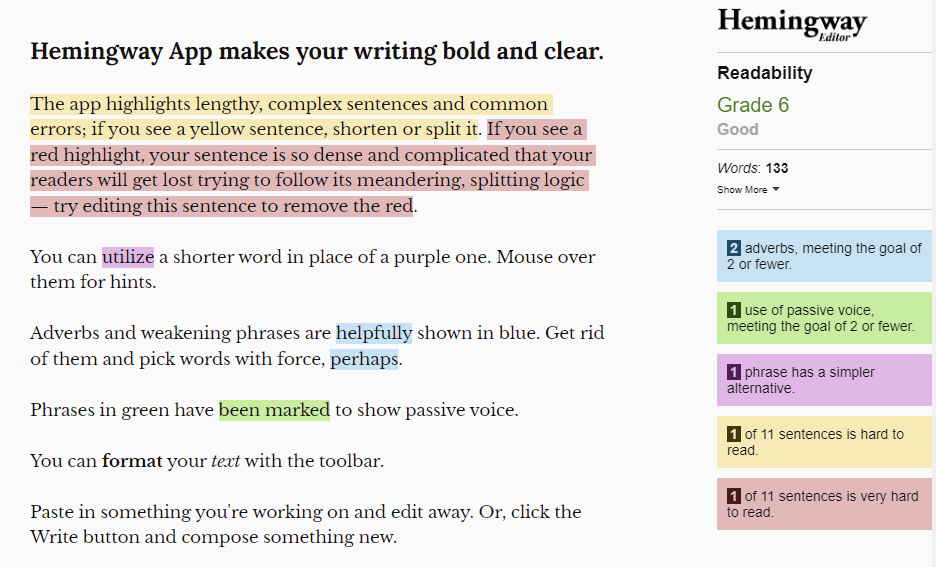
Content marketers and SEO writers use this tool to ensure that their sentences are easy to understand, even for newbies in their niche.
Paste any text into the tool and click “Analyze” to get an overall content score and color-coded editing suggestions. The tool also improves clarity by highlighting complex words and use of passive voice.
Overall, Hemingway helps create concise, easily readable prose, which is essential for SEO.
Once your content is ready, it’s time to optimize it for your keywords and niche so it can make an impact on search engine results. Rather than manually checking your blog post for the right keywords and keyword density, you can use one of the tools below:

Clearscope helps you create highly relevant content that matches your target audience’s search intent. When you paste your draft into Clearscope, it grades it to indicate how well it fits your user’s search intent.
It also ranks your readability and suggests a target word count. Rather than just listing the keywords you should use, it shows you why each keyword is recommended.
For example, in the image above, Clearscope shows you how important the phrase “American Express” is for that article by noting that it’s constantly present in competitors’ headings. It also shows how often the term is used within content and gives you examples so you can learn how to use it.
MarketMuse gives writers all the keywords and related topics that they must include in their content. Like most other optimization tools, marketers and writers get a list of words to add with the minimum amount of times they must use it within their content piece.
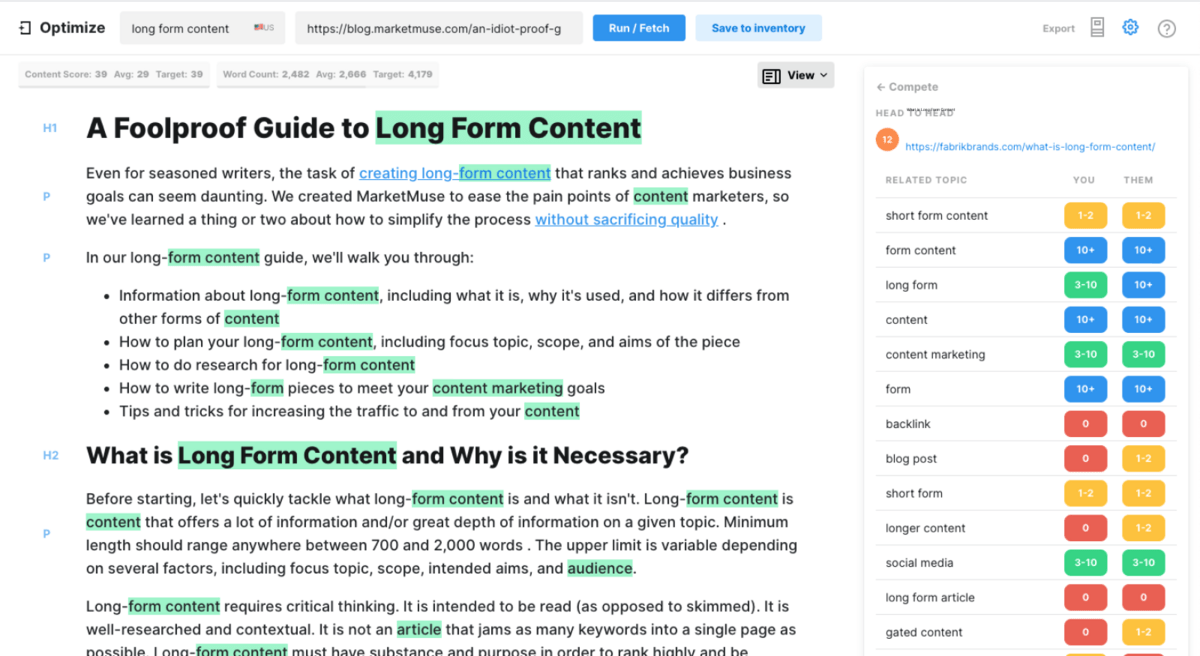
Apart from optimization, the tool lets you compare your piece with any of the top 20 competitor pages, so you can mimic effective elements and exploit any content gaps you find.
The software also generates content briefs and has an inventory, where it collects all your web pages and then organizes and analyzes them.
SEMRush’s SEO Writing Assistant analyzes your text for keyword usage. It suggests target keywords that are essential for your content, along with additional secondary phrases that can help get better SEO results.

The keywords suggested by SEMRush are gathered from real-time data based on the top-ranking content for your specific topic.
The Writing Assistant also checks for readability, tone, and plagiarism.
Wordable boosts your productivity and enables teams to publish more content while saving time and money. From an SEO perspective, Wordable makes it super easy to import meta titles and descriptions, optimize images, and more — all at the click of a button (instead of spending hours per week manually-importing content).
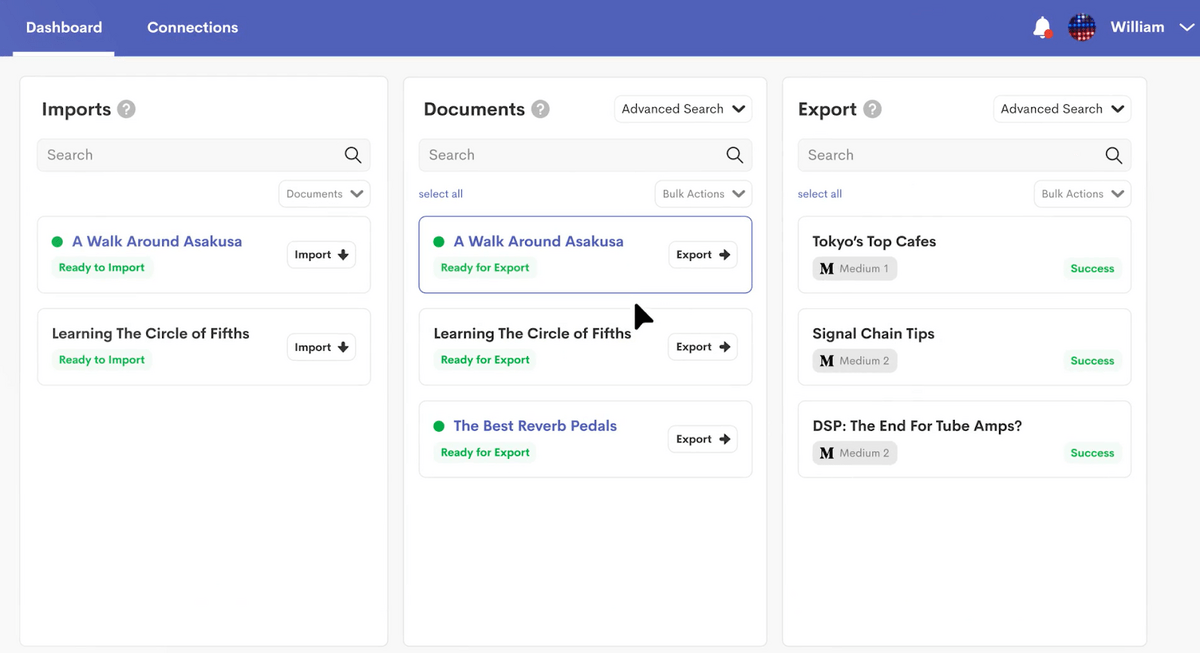
The publishing tool automatically imports documents from your Google Docs or Google Drive folder, lets you edit crucial elements like title tags and images and then export them to your content management system (CMS) like WordPress or HubSpot.
Teams can create templates to adhere to formatting guidelines for different clients. They can save and use the templates to edit and publish content in bulk.
Other processes you can do in a single click instead of wasting hours are:
You can also set the status for each document, so everyone on your team knows where it is. This eliminates confusion and prevents repetitive work.
If WordPress is your preferred CMS, Yoast SEO is a must-have. This free WordPress plug-in is a staple amongst most marketers.
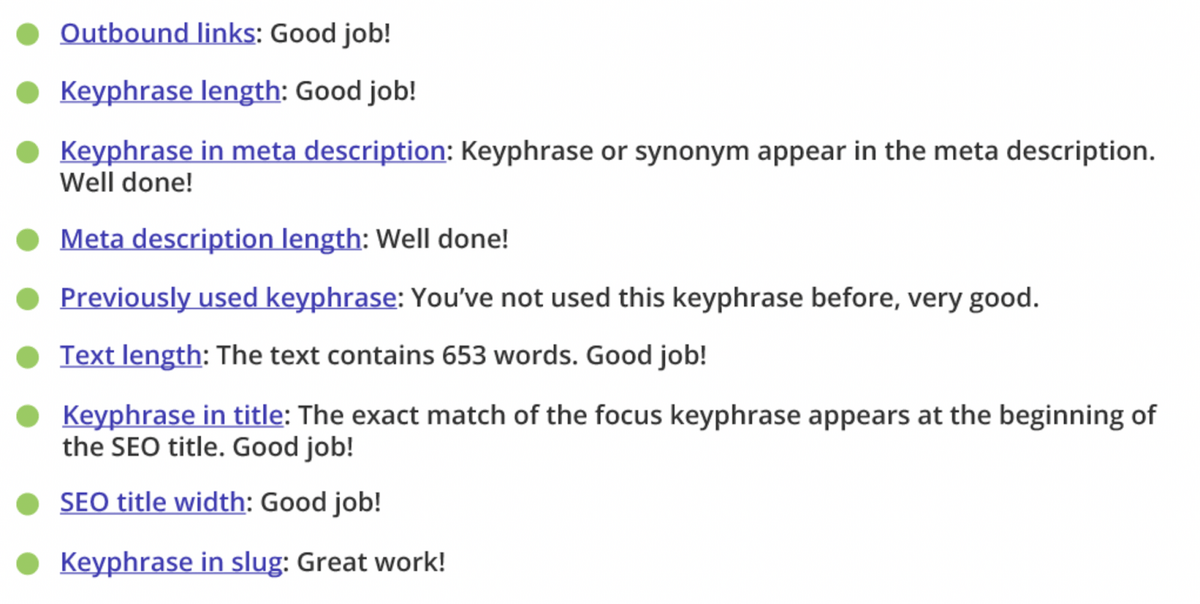
Once you’ve imported your content into WordPress, Yoast analyzes it for various factors to determine how SEO-friendly it is. These include keyword length and usage, links, text length, and more.
Yoast SEO also automatically takes care of technical SEO for you but lets advanced users customize elements to suit their needs.
The plug-in has a free version that is commonly used, along with a Premium version with additional features like link checking, social media previews, and access to the Yoast SEO academy.
Rephrase is a freemium content optimization paraphrasing tool. It helps writers to optimize their written content by using more appropriate words/phrases, improving sentence structure, tone, readability, etc.
The tool works on advanced algorithms that efficiently understand the context of the input text and then paraphrase it in an efficient way. The output text provided by this content optimization tool will be both user and search-engine friendly.

Additionally, the Rephrase supports 23 international languages, allowing writers from all around the world to make use of it in their native language.
Not just this, it also offers a built-in plagiarism checker and summarizer. This allows writers to check the plagiarism of output results, or summarize it on the spot without going to any other third-party website.
SEO content has to be engaging and concise while including the right keywords and paying attention to all the little details that can affect your search ranking.
Missing out on one or two keywords might not seem like a lot, but it can take you from the first page of Google results into the relative obscurity of the following pages.
This is why content writers and marketers need to be armed with the best SEO tools out there, and we hope our list helps you pick the right software for your needs.
Related reading: